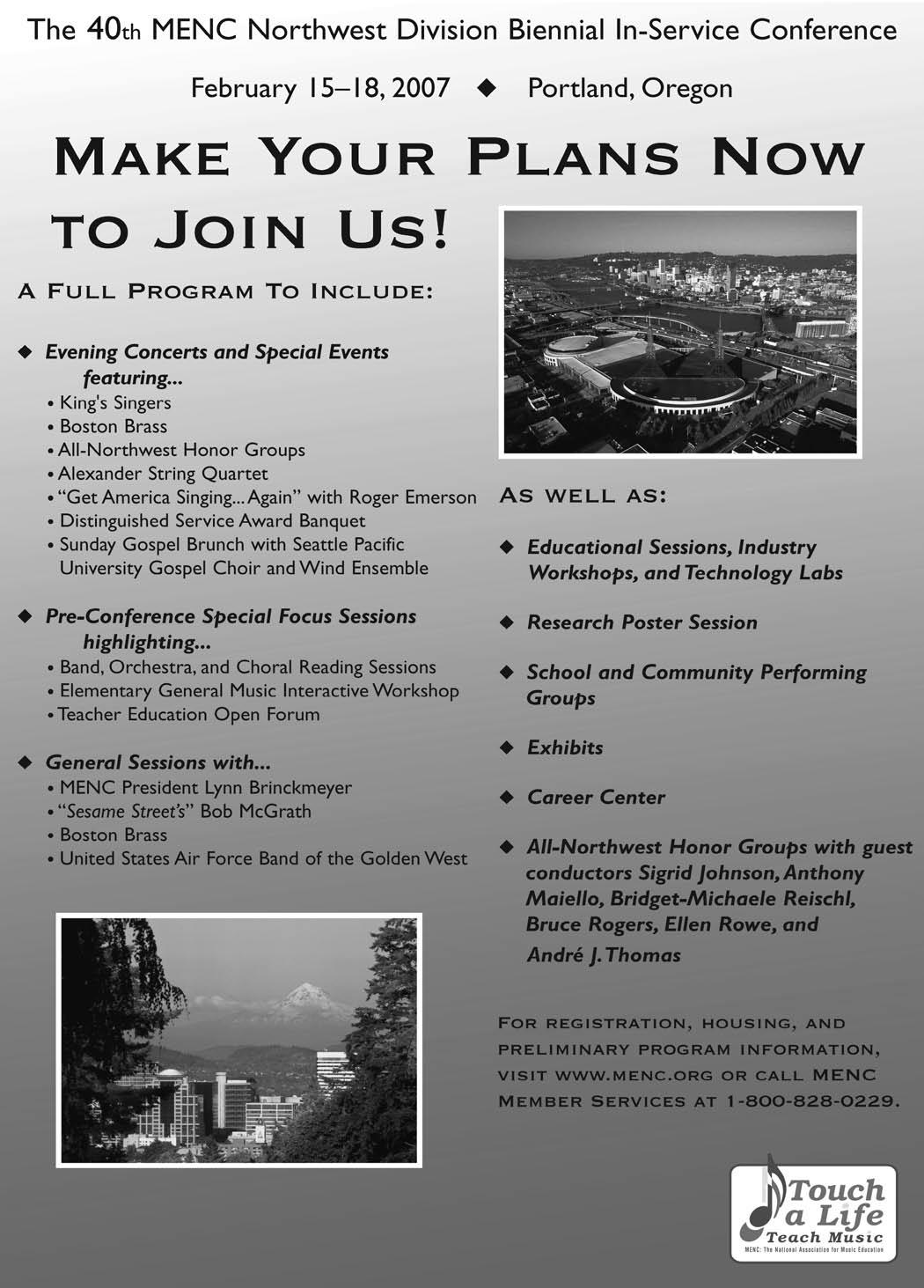




















OMEA Executive Committee
OMEA Board President
Steven Zielke, Oregon State University
541.737.5584, szielke@oregonstate.edu
OMEA 2nd VP/2007 Conf. Chair
Jeffrey Hornick, McMinnville High School 503.565.4395, jhandbh@teleport.com
OMEA First VP
Christopher Silva, David Douglas High School 503.261.8273, christopher_silva@ddouglas.k12.or.us
OMEA Historian
David Becker, Lewis and Clark College 503.768.7464, dbecker@lclark.edu
OMEA Past President
Patrick Vandehey, George Fox University 503.554.2621, sajavan@comcast.net
OMEA Treasurer
Tracy Ross, Sheldon High School 541.687.3391, ross@4j.lane.edu
Executive Manager
Mark Jones 503.233.3118, admin@oregonmusic.org
Standing and Area Chairs
Band Chair
Dave Sime, Redmond High School 541.923.4800, dsime@redmond.k12.or.us
Business/Sustaining Membership Chair
Al Kato, Jesuit High School 503.292.2663 7040, akato98@yahoo.com
Choral Chair/ACDA Representative
Kimberly Kroeger, Tualatin High School 503.431.5705, Kkroeger@ttsd.k12.or.us
Collegiate Chair
Fredna Grimland, Southern Oregon University 541.552.6533, grimlanf@sou.edu
CMENC Representative
Katie Hadley kthadley123@yahoo.com
Elementary Music Chair
Nancy Milliron, Juniper Elementary 541.383.6165, nmilliro@bend.k12.or.us
General Music Chair Elect
Marianne Heater, Riverside Elementary 541.474.5780, MHEATER@grantspass.k12.or.us
Membership Chair
John Skelton skeltonjohn@comcast.net
MIC Representative
Keith Weathers 503.362.8708 l8bear@aol.com
OSGM Chair
Lynnda Fuller 503.543.6371, lynnda.fuller@gmail.com
Recording Secty.
Robert McGlothin, Sandy High School 503.668.8011 233, mcglothinr@verizon.net
Retired Member Chair
Richard Elliott, George Fox Univeristy 503.538.2945, bandman68@comcast.net
Small Schools Chair
Mary Ann Vidourek, Grant Union High School 541.575.1799, robert245@centurytel.net
SMTE Chair
Edward Higgins, Portland State University 503.725.3051, ehiggins@pdx.edu
State Solo Contest Chair
Rendell Frunk, Estacada High School 503.630.8515 2848, frunkr@estacada.k12.or.us
All-State Band Manager
David Sime, Redmond High School 541.923.4800, dsime@redmond.k12.or.us
All-State Choir Manager - Men
Marci Taylor, Westview High School 503.259.5218, Marci_Taylor@beavton.k12.or.us
All-State Choir Manager - Women
Susan Schreiner, Wilsonville High School
503.673.7648, schreins@wlwv.k12.or.us
All-State Jazz Manager
Susie Jones, Mt. Hood Community College 503.491.7158, joness@mhcc.edu
All-State Orchestra Screening Manager
Dave DeRoest, Waldo Middle School 503.399.3215, dderoest@wvi.com
MS Honor Band Manager
Gene Burton, Dexter McCarty Middle School 503.665.0148, gene_burton@verizon.net
MS Honor Choir Manager
George White, Central Middle School 541.938.5504 7275, george.white@miltfree.k12.or.us
MS Honor Orchestra Manager
Jeff Simmons, Summit High School 541.322.3407, jsimmons@bend.k12.or.us
Co-Elementary Choir Manager
Toni Skelton, Myers Elementary 503.399.3175, toniskelton@comcast.net
Co-Elementary Choir Manager
Steve Phillips, Auburn Elementary 503.399.3128, SPhil25216@aol.com
OMEA Districts
District 01 Chair
Paul Jolstead, Wilson High School 503.916.5280 429, pjolstea@pps.k12.or.us
District 02 Chair
David Mann, Centennial High School 503.762.6141, bandmann@comcast.net
District 03 Chair
Christopher Heinemeyer, St. Helens High School 503.397.1900, chrish@sthelens.k12.or.us
District 04 Chair
Bill Snyder, South Salem High School 503.399.3252, snyder_bill@salkeiz.k12.or.us
District 05 Chair
Dave Sime, Redmond High School 541.923.4800, dsime@redmond.k12.or.us
District 06 Chair
Jeff Sizer, Baker City High School 541 524 2617, jsizer@eoni.com
District 07 Chair
Shannon Dickey, Siuslaw High School 541.997.3448, sdickie@lane.k12.or.us
District 08 Chair
Janel Reed, Eagle Point Middle School 541.830.6040, reedj@eaglepnt.k12.or.us
District 09 Chair
Gary Robbins, Nyssa High School 541.372.2287, grobbins@nyssa.k12.or.us
District 10 Chair
Nathan Parker, South Umpqua High School 541.863.5482, natep73@yahoo.com
District 11 Chair
Josh Head, Lebanon High School 541.451.8555, Josh_Head@lebanon.k12.or.us
District 12 Chair
Timothy Vian, Thurston High School 541.988.5352, TVian@sps.lane.edu
District 13 Chair
Shawne Stone, Rex Putnam High School 503.353-5872, stones@nclack.k12.or.us
District 14 Co-Chair
Sue Schreiner, Wilsonville High School 503.673.7648, schreins@wlwv.k12.or.us
District 14 Co-Chair
Matt Whitehead, Wilsonville High School 503.673.7648, whitehem@wlwv.k12.or.us
District 15 Chair
Eric Swanson, Westview High School 503.259.5218, eric_swanson@beavton.k12.or.us
Special Board Representatives and Liaisons
OSAA Assistant Exec Dir
Mike Wallmark OSAA 503.682.6722 226 mikew@osaa.org
OSAA Band/Orch Contest Chair Chuck Bolton Warner Pacific College tubasat@aol.com
OSAA Band Rep
Jennifer Muller David Douglas High School 503.261.8246 Jennifer_Muller@ddouglas.k12.or.us
OSAA Board Rep
Jennifer Muller David Douglas High School 503.261.8246 Jennifer_Muller@ddouglas.k12.or.us
OSAA Choral Liaison Marci Taylor Westview High School 503.259.5218 Marci_Taylor@beavton.k12.or.us
OSAA Choir Contest Chair
Matthew Strauser Corban College 503.589.8167 mstrauser@corban.edu
MENC Leadership
MENC National President
Lynn Brinkmeyer
800.828.0229, www.menc.org
MENC National President Elect
Barbara L. Geer
MENC Executive Director
John Mahlmann 800.828.0229, www.menc.org
NW MENC Region President
Jim Rice jricemusic@verizon.net
EDITOR
Oregon Music Educator Mark Jones, MPA, Editor PO Box 69429, Portland, OR 97239 503.233.3118
E-mail: admin@oregonmusic.org website: www.OregonMusic.org
Apollo Graphics, Inc.
Wade Graphic Design, Inc.
Jan Bishop Editorial Assistance
The Oregon Music Educators Association is a federated State Association of the Music Educators National Conference, a voluntary, non-profit organization representing all phases of music education in schools, college, universities, and teacher education institutions. Active MENC-OMEA membership is open to all persons engaged in music teaching or other music educational work. Membership office is at 1806 Robert Fulton Drive, Reston VA 220-91-4348. Non-member subscriptions are $15 per year; $5 per issue. Bulk rate postage paid.
234th Army Band • Jesse Salas 6255 NE Cornfoot Rd Portland OR 97218-2747 jesse.salas@or.ngb.army.mil
Alfred Publishing Co., Inc • Kathy Johnstone PO Box 10003 Van Nuys CA 91406 kjohnstone@alfredpub.com • www.alfred.com
Beacock Music Co. • Phil Hodapp 1420 SE 163rd Ave Vancouver WA 98683 duxrgr8@aol.com • www.beacockmusic.com
Beaverton Music Services • Russ Schmidt 12630 SW First St Beaverton OR 97005 russ@teleport.com
Britt Festivals - Britt Institute • Joelle Graves PO Box 1124 Medford OR 97501 education@brittfest.org
Cantare Voice Studio • Marieke Schuurs Aroaia 2055 Tabor St Eugene OR 97401 www.cantarevoicestudio.com marieke@cantarevoicestudio.com
Conn-Selmer, Inc. • David Mester, CTSM PO Box 310 Elkhart IN 46515 www.Conn-Selmer.com
DJ Records • Doug Anderson PO Box 445 Trout Lake WA 98650 doug@dj-records.com • www.dj-records.com
Educational Travel Services, Inc. • Julie Sabala PO Box 82605 Portland OR 97282 julies@etsi.ws • www.etsi.ws
Empire Music • Gwenda Williams PO Box 9754 Bellingham WA 98227-9754 empire@empire-music.com • www.empire-music.com
Gemstone Musical Instruments Teri Barber PO Box 788 Elkhart IN 46515 www.gemeinhardt.com • tbarber@gemeinhardt.com
Gordon Bernard Company • Jerry Johnson 22 Whitney Dr Milford OH 45740 jerdjj@hotmail.com
Gordon Bernard Company • Jerry Johnson 13017 Narcis Ct Nine-Mile Falls WA 99026 jerdjj@hotmail.com • jjohnson@gordonbernard.com
Gracewinds Music • Ken Oefelein 137 SW 3rd St Corvallis OR 97333 travis@gracewindsmusic.com
JW Pepper • Jenifer Green PO Box 9800 Tacoma WA 98409-9800 phowland@jwpepper.com, www.jwpepper.com
Lawson’s Keyboard Center • David Lawson 2504 Willamette Street Eugene OR 97405 www.lawsonskeyboards.com, lawsons@cmc.net
Lionel Hampton School of Music, Univ of Idaho Susan Hess PO Box 444015 Moscow ID 83844-4015 shess@uidaho.edu
Marylhurst University • John Paul 17600 Pacific Hwy #261 Marylhurst OR 97036-0261 pwittenberg@marylhurst.edu
MTD marketing, Inc. • Mike Danforth 6165 Lehman Dr #205 Colorado Springs CO 80918 miked@mtdmarketing.com • www.mtdmarketing.com
Music T’s • Paul Proctor 1031 Eastgate Dr Midlothian TX 76065 les@music-ts.com
Neil A. Kjos Music Co. • David Paul 4380 Jutland Dr. San Diego CA 92117 dpaul@kjos.com • www.kjos.com
New Horizons Tour & Travel • Tish Brown/Keith Spade 2727 Spring Arbor Rd Jackson MI 49203 travel@nhtt.com • www.nhtt.com

Noteworthy Music Stands • Bob Meyer 6790 SE King Rd. Milwaukie OR 97222 www.noteworthymusicstands.com
Oregon State University Music Department
Brad Townsend OSU - 101 Benton Hall Corvallis OR 97331-2502 btownsend@oregonstate.edu
OSU Department of Music Tina Bull/Rachelle Macabe 101 Benton Hall Corvallis OR 97331 osu.orst.edu/dept/music/
Pacific Winds • Willie Knauss 791 W. 8th Ave Eugene OR 97402 www.pacificwindsmusic.com willie@pacificwindsmusic.com
Peery Products Co., Inc. Kat Hoffman-Traver PO Box 22434 Portland OR 97269 Faith@peeryproducts.com info@peeryproducts.com
Peripole-Bergerault, Inc. Sylvia Perry PO Box 12909 Salem OR 97309-0909 contact@peripolebergerault.com www.BergeraultUSA.com
Portland Youth Philharmonic
Ingrid Arnott 421 SW Hall St, Ste 1350 Portland OR 97201 ingrid@portlandyouthphil.org
Sabian Ltd. • Nick Petrella 219 Main Street Meductic NB, CANADA E6H 2C5 www.sabian.com
Sheet Music Service
Michael Sagun/Patty Cook 810 SE Sherman St Portland OR 97214-4657 www.sheetmusicservice.com
Synthesis Midi Workshop
Mike Klinger PO Box 1277 Carson WA 98610 www.midiworkshop.co klinger@midiworkshop.com
University of Oregon School of Music
Dr Jeffrey Williams 1225 University of Oregon Eugene OR 97403-1225 ppaul@darkwing.uoregon.edu
University of Oregon School of Music
Scott Barkhurst/Ceci Lafayette 1225 University of Oregon Eugene OR 97403-1225 scottb@oregon.uoregon.edu/music.uoregon.edu
Wally’s Music Shop • Steve Bond 607 Washington St Oregon City OR 97045 wallysmusic@wvi.com
Western Oregon U./ Music Dept. • Solveig Holmquist 451 Monmouth Ave Monmouth OR 97361 holmqus@wou.edu
Willamette University Music Dept.
Attn: Diane Trevett 900 State St Salem OR 97301 dtrevett@willamette.edu
Yamaha Corporation of America Christi Soto/Media Buyer/Coordinator 6600 Orangethorpe Ave Buena Park CA 90620 csoto@yamaha.com
Yamaha Corporation of America Band & Orchestra Division Larry Chamberlain 11410 NE 124th St, PMB 521 Kirkland WA 98034 lchamberlain@yamaha.com • www.yamaha.com/band
the chiseled athlete strains to compete at the highest level. Ultra-fluorescent fluid cascades out of every pore. Have you ever seen this Gatorade© commercial on television? It always ends with the phrase, “Is IT in you?” Every time I see this image I’m reminded of the single most important trait we need to be highly effective teachers: enthusiasm. Enthusiasm must literally cascade from our innermost being, pouring over our students like a refreshing, lifegiving rain. Webster’s Dictionary describes enthusiasm as a strong excitement of feeling, something inspiring zeal or fervor. In his book Everyday Wisdom for Inspired Teaching, Dr.
Tim Lautzenheiser characterizes enthusiasm as the secret ingredient of a master teacher. Call it passion, zest, or even fanaticism, our students need to experience IT in our teaching, day in and day out.
Why is enthusiasm critical to our success as a teacher?
Because it can make the difference between success and failure. Two people with virtually the same amount of skill and talent can differ vastly in the degree of success they achieve. This difference can’t be attributed to one person having more ability than the other. In fact, in many cases, the more successful person actually has less ability. No, the difference that empowers us to attain our greatest
heights is not as a result of our ability but rather the energy, the fuel, the blazing fire that enthusiasm sparks in us.
Life’s blows cannot break a person whose spirit is warmed at the fire of enthusiasm.”
Norman Vincent Peale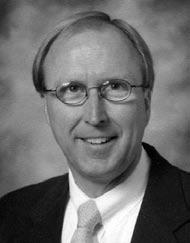
Enthusiasm gives us will power. It stokes our internal fire, igniting our desire to do our best and be our best daily. With enthusiasm close by our side, we find more than enough strength to power through any and all obstacles placed in our path. With enthusiasm lighting the way, the brilliant bright light of opportunity replaces the dark clouds of doubt and indecision. The commitment our students, parents, administrators, and community have to music education is directly proportional to the enthusiasm they perceive in us.
continued on page 6...


Enthusiasm is the leaping lightning, not to be measured by the horse-power of the understanding.
Ralph Waldo EmersonEnthusiasm gives us fire power. It is an almost magical energy that supercharges our innermost being. Unabashed enthusiasm primes our pump and infuses a powerful, positive, “I can do it” attitude that can’t be defeated or discouraged. By choosing to make enthusiasm in our classroom our dominant state of mind, we unleash unrestricted creativity, making the impossible become possible.
Flaming enthusiasm, backed up by horse sense and persistence, is the quality that most frequently makes for success.
Dale CarnegieEnthusiasm gives us horse power. It fuels our imagination. It helps us to see our classroom as it could be and provides the spark to make it so. It pumps our teaching with purpose and passion. Arthur James Balfour said, “Enthusiasm moves the world.” When we choose enthusiasm, we discover a powerful force that can carry us to unimagined heights.
I have to admit that it’s extremely easy for me to be enthusiastic about our upcoming Northwest Division Conference in Portland, February 15-18. Our planning committee has outdone itself to ensure that over 90 educational sessions will be relevant, practical, and inspirational. There are 59 performing groups preparing to thrill us with what is possible.

The City of Portland and the Oregon Convention Center are rolling out the red carpet to make our conference experience truly world class. Come, share it with us! You can register online by going to www.menc.org and locating the “Conferences” sidebar.
Henry Ford said, “You can do anything if you have enthusiasm. Enthusiasm is the yeast that makes your hopes rise to the starts. Enthusiasm is the spark in your eye, the swing in your gait, the grip of your hand, the irresistible surge of your will and your energy to execute your ideas.”
Enthusiasm—Is IT in you?

some of my earliest memories involve the multiple trips each year as my father attended music conferences, workshops, and reading sessions. It was while tagging along during these family vacations that I learned to know the giants in my field. Eventually as many in my family became music educators, these trips took on a sort of family reunion where family time turned into discussion of pedagogy and repertoire. The impulse to attend festivals, workshops, and conferences took on a passion that was a combination of social interaction and fear that some great musical moment would occur and I would miss it. Perhaps a new technique would be shared, or a concert experienced, that would have become a part of my musical and professional life, if only I had not skipped the event.

As I think of my early years of conference attendance, what strikes me most is not the clinicians or concerts but rather the other attendees that I grew to know and respect. Their attendance was more like a religious pilgrim-
age than a professional in-service obligation, often requiring a sacrifice of personal time and finances. From these people I learned about the passion and desire to know more. Early on, wanting more to be the clinician than the “cliniced,” I looked down on this. I believed that the smartest person in the room was the person who didn’t need to learn. But, as the giants became my mentors, I learned that they were also great learners, passionate about challenging their own understanding of teaching. What made them great was not what they knew or what they could do but rather their desire to know more.
It seems to be a reality that we either grow or we regress. The law of diminishing returns is a beautiful truth of our profession. There probably is a time in every teacher’s career where they think they have it all figured out—that they can relax and enjoy the ride. But evidence suggests that this perception is an illusion and is likely the moment of impending mediocrity. The reality is that we constantly are in need of professional growth. I see the evidence of this need as I watch teachers sitting in the back of All-State and All-NW rehearsals, taking notes on the work of the conductor. I see it as I watch teachers observe clinicians work with their ensembles, each processing information,

filing it away in the recesses of their mind to be used in a rehearsal the next week. I also see it as I watch groups of teachers meeting together in the coffee shop at conventions, talking about a session they attended or a resource they saw at a booth.
This passion for learning moves me. It reminds me to never quit looking for new knowledge that I can share with my students and new techniques that can enliven my rehearsals. It is a reminder of how powerful we are and how great a difference we can make in the lives of our students. The desire of my colleagues reminds me that the heart of passion for learning must lie in my desire to give my students life-changing musical moments. The passion is in me. Is it in you?
It is a fortunate year that provides two conferences for our members, both of which have been planned to provide you with the kind of experiences that will revitalize your teaching. The annual OMEA in-service is scheduled for January 11-14. Jeff Hornick, the conference chair, has planned a very exciting conference. February 15-18, Oregon is proud to host the NW MENC Biennial Conference. Jim Rice, NW MENC Division President, has worked for several years to create an incredible event that will bring together music teachers from throughout the Northwest. I hope you will make plans to attend both events.
whatisattheheartof ourpassionforlearning? isitinyou?

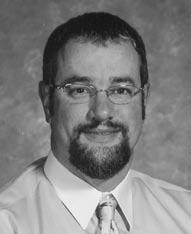
As we head into the middle of the year, otherwise known as the winter doldrums, we often need something to recharge our batteries. Assuming that you’re reading this after the January conference, I hope that you were able to take some ideas back to your classroom that will, as a former teacher was fond of saying, keep things “fired up.”
A terrific motivational tool (but one that, I confess, I’ve never previously used) is the use of a guest soloist. Like many ideas, bringing in an outside soloist seems to be an idea that we don’t currently use nearly as much as did previous generations of music educators. Whether that’s due to expense, not fitting in with current philosophies or priorities, or a myriad of other issues is a discussion for another time. Having just hosted a soloist for our fall concert, though, I can say that I can’t wait until the next opportunity presents itself.
What, you might ask, do the students get out of the experience? By bringing in a professional, the students get to see and hear firsthand what we mean when we say that we expect music to be learned at home and that rehearsals are primarily for figuring out how everything is supposed to fit together. Unless you are extremely fortunate, you will probably not have more than one rehearsal with the soloist. A good soloist knows that if he or she isn’t prepared, then there is little chance of the performance coming off. I know I am continually harping on my students that they need to learn the notes on their own time, but actually seeing that concept in practice was a real eye-opener.
What else do the students get out of the experience? Well, depending on the abilities of the soloist, they may get to hear things that they thought were impossible to do. This can be especially powerful if the soloist plays a “non-traditional” solo instrument, such as the tuba. This can also end up being a top-notch recruiting tool by getting kids interested in the possibilities of instruments that you may be short on. (Obviously this is more applicable to the instrumental world than
the vocal, as a great bass soloist isn’t going to inspire any sopranos to switch parts.)
Having touched on some of the possible benefits to the students, you might be wondering what’s in it for the director? I can only comment on what my experience was but, first and foremost, as it tends to be for the students, was the opportunity to make music with an outstanding performer. Second, I was able to explore repertoire that I normally wouldn’t get a chance to look at, as concertos and the like don’t readily fit into regular programming parameters. Third was the personal growth that I experienced as a conductor that went along with working on an unfamiliar part of my craft (i.e., accompanying). I would be hesitant to say that these are the only reasons, though, and I’m sure that
a more thorough examination would turn up many others.
Careful readers will have noticed that I specifically mentioned the tuba in an earlier paragraph. I would like to take this opportunity to give a huge public “thank you” to JaTtik Clark, principal tubist with the Oregon Symphony, for his performance as featured soloist with the McMinnville High School Symphonic Band on our recent concert. Ever the consummate artist, Mr. Clark made my first try at accompanying a soloist a breeze. Further, in addition to being a superb artist, he is a wonderful person who related to, and connected with, the students.
Finally, another huge and public “Thanks!” to all who helped (or, more precisely as I’m writing this in December, are helping) to make the 2007 conference viable, valuable, and relevant: THANK YOU!!!


Times and locations subject to change.
10:00 a.m. Seeger ORCH—Judy Bossuat—“Optimizing Physical Comfort and Balance for String Players”
O’Neill BAND—Charles Dowd (UofO)—Percussion Clinic
Studio1 ELEM— Rene Boyer—”A Spotlight on Oregon through Rhyme, Rhythm, Song and Drama”
Bloch CHORAL— Dr. Fredna Grimland (SOU)—The High School Soprano Voice
1:00 p.m. Studio B/C
CMENC—Tina Bull—“Preparing for PRAXIS”
Hellman BAND—UofO Trombone Ensemble—Concert
Studio 1
ELEM— Cak Marshall— “Keep the Music Ringing”
Bloch CHORAL— Dr. Stephen Coker (PSU)—TBA
2:30 p.m. Studio B/C
CMENC—Fredna Grimland—“Before you get to the music. . .”
O’Neill BAND—West Linn HS/Rosemont Ridge MS—Concert
Studio 1 ELEM— Rene Boyer—”The Quilt Speaks About African-American History in Our Schools”
Bloch CHORAL— Dr. Paul French (SOU)—“The Ear of the Beholder: Just Intonation for the Choral Rehearsal”
4:00 p.m. Sousa BAND—OBDA Business Meeting
Studio 1
ELEM— Cak Marshall— “TOOTLES! Beginning Recorder Trios for Children”
CHORAL—Open for exhibits
Bloch ORCH—Jim Rice—“No Bows? Wind Instrument Techniques for String Players”
5:00 p.m. Hult Middle School Honor Groups Concert
7:15 a.m. Director’s LDRSHIP—District Chair breakfast meeting
8:15 a.m. Studio B/C
MISC—David Rogers—“Beginning Guitar Classes: Getting a classical guitar technical foundation” (Please bring a guitar to the session)
Sousa BAND—Angela Woo—MS Honor Band conductor session
Board ORCH—James Kjelland—Do-It-Yourself Orchestral Bowing
ELEM—OPEN FOR EXHIBITS
Bloch CHORAL— Dr. Tim Seelig (SMU)—“’Warm-up Boot Camp’ or ‘Exciting Warmups: An Oxymoron No More’”
10:00 a.m. O’Neill/Williams GENERAL SESSION
Oregon All-State Elementary Honor Choir
Keynote Address—Renee Boyer— ”Music Brings Us Together! - Celebrating the Joy of Music in All Our Lives”
1:00 p.m. O’Neill BAND—Hanasaki HS Band open rehearsal
Board ORCH—James Kjelland—It’s What You Don’t Say: Non-verbal Teaching Strategies for the String Class and Private Studio
Bloch ELEM— Denise Phillips
Studio 1 CHORAL— Pat Patton—MS Honor Choir Conductor Session
Seeger ADVOCACY—TBA

2:30 p.m. O’Neill BAND—Hanasaki HS Band clinic—Tuning/Sound(?)
Bloch ELEM— Patty Bourne—“This or That? Determining Priorities when Selecting Repertoire for Treble Choirs”
Studio 1 CHORAL— Concert Hour—SOU Chamber Choir/Sam Barlow HS Symphonic Choir
Seeger ADVOCACY—TBA
4:00 p.m. Joplin JAZZ—Dana Libonati—Developing the Rhythm Section
Studio B/C MISC—SOU Guitar Ensemble—Concert Hour
Director’s BAND—Herb Brodine—Teaching Rhythm
Board ORCH—Bryce Seliger—Starting a New or Invigorating an Existing Orchestra Program
Bloch ELEM— Mari Schay & Co.—“From Zimbabwe to Orff”
Studio 1 CHORAL—Concert Hour— OSU Men’s Ensemble/HS Chamber Choir (TBA) ADVOCACY—TBA
6:00 p.m.
7:30 p.m.
9:00 p.m.
O’Neill/Williams/Hellman Gala Conference Banquet
O’Neill/Williams/Hellman Hanasaki HS Band performance
O’Neill/Williams/Hellman All-State Jazz performance
9:00 a.m. Sousa BAND—Larry Gookin—Does Standard Conducting Technique Really Matter?
Studio 1 ELEM— Clare Bourquein—“Sing, Move, Play: What works in the music classroom”
10:30 a.m. Directors ORCH—Jeff Grogan—”’Why did I sign up for this?’: Staying inspired when the job gets in the way of the music”
Sousa JAZZ—Hal Sherman session
Bloch CHORAL— Dr. Karen Kennedy (Towson State Univ.)— HS Honor Choir Conductor Session
Studio 1 ELEM—Lynnda Fuller—TBA
1:00 p.m.
O’Neill BAND—UofO Percussion Ensemble—Concert
Bloch CHORAL—Dr. Donald Trott (Univ. of Miss.)—HS Honor Choir Conductor Session
3:00 p.m.
Gala All-State Concerts Hult
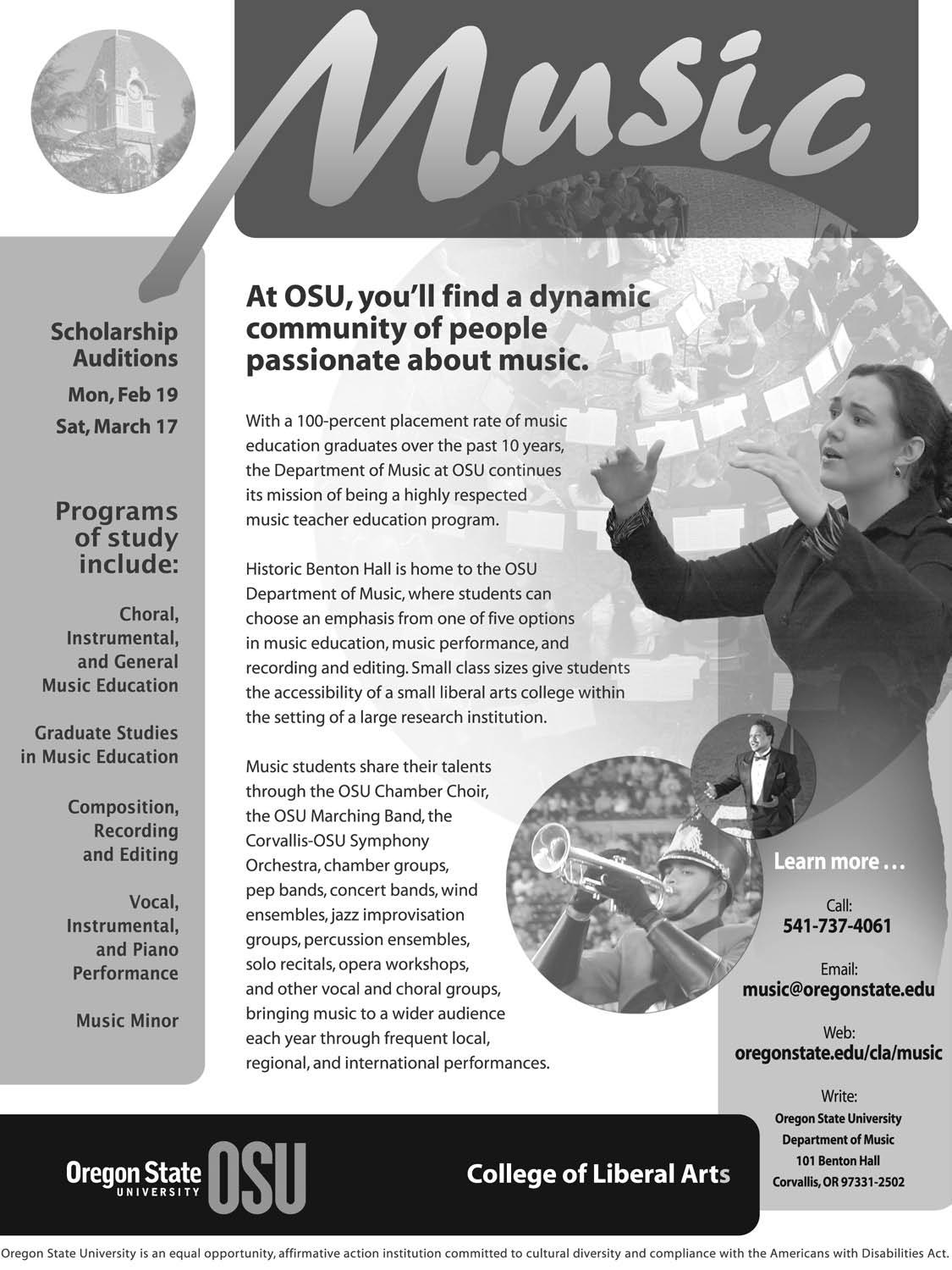
Hilton Eugene & Conference Center • Hult Center for the Performing Arts
Hotel Information
Hilton Eugene & Conference Center
66 East 6th Avenue • Eugene, OR 97401-2667
Reservations: 1-541-342-2000
OMEA Conference rate: $129/night plus 10.5% tax, total $142.55
Directions
From Interstate 5: Take exit 194B onto I-105. Follow I-105 until it ends at Jefferson Street. Take left hand exit onto 7th Avenue as freeway ends. Turn left on Oak Street. Turn left on 6th Avenue.
First Name
Spouse First Name (if they are attending)
Last Name
Spouse Last Name
Email Address School
Address 1
Full-Conferencetickets(includesBanquetandAll- stateConcerts)
(Spouse tickets only available with full-price member/non-member tickets.)
Vegetarian meal available; please indicate the number of vegetarian meals you would like for the All-Conference Banquet
*Must provide MENC number in space above.
Make checks payable to Oregon Music Educators Association
Send to: OMEA • P.O. Box 69429 • Portland, OR 97239
iwon’t even pretend to have anything new or profound to share with most of you, but, just in case you are new to the profession, I’d like to make you aware of a few gems that I couldn’t live without:
• If you have not yet discovered the Music K-8 magazine (www. MusicK8.com), I would highly recommend it to anyone who teaches music to elementary and middle-school students. It is filled with contemporary, exciting, age-appropriate music; tried and true ideas from other music educators; interviews/ profiles of musicians past and present; games and resources that reinforce the concepts and ideas that we teach; topical and seasonal materials; and an accompaniment/performance CD with each issue that is state-of-the-art, featuring top professional musicians! At the end of the year, you also have an entire musical revue with a teacher’s guide, a script,

music and an accompaniment CD (of course), program notes, etc. Oh, it’s also affordable! All this for just under $100/year! The folks who create this resource are phenomenal. My students absolutely love the music that I choose from this magazine. I can’t sing its praises (pun intended) enough!
• Hal Leonard also has a similar publication, Music Express This I know only by reputation. You should check that one out too (www.halleonard.com). It comes with student magazines—a feature that one of my colleagues particularly likes.
• Our school district (Bend-La Pine) has recently been through the textbook adoption process. We were pleasantly surprised to get funding last spring in order to receive our new materials this fall. (Thank you to all my colleagues! Thanks for hanging in there!
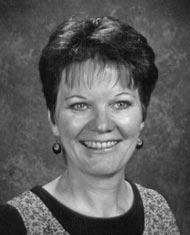
Our plugging away has paid off richly and now we can enjoy these fruits of our labor!)
I’m thrilled with the choice we made: Scott Foresman/Addison/Silver-Burdett’s Making Music. If you are in the position of adopting new texts, this one is superb! Like Music K-8, the music and recordings are top-notch and contemporary with high kid appeal. Even though it is designed to take you through one school year, it is packed with enough excellent material to get you through several years without duplication.
• I use several classic resources for kindergarten, and movement and dance (Phyllis Weikart’s Rhythmically Moving series, Raffi’s songs/stories, American play party songs/games, etc.).
• Last, but certainly not least, let me remind you of our state conference in January as a wonderful opportunity for gathering new ideas and materials, as well as collaborating with your colleagues from around the state. I hope to see you all there!


Have you ever imagined music wafting through the halls of your school first thing in the morning? Can you imagine students quietly settling in for a day of learning, some writing in journals, others drawing, some just listening? The hush in the room as the music ends, students focused and ready to learn? Sound like a fantasy? Well, you can make it a reality in your school.
Since 1999 Britt Festivals has offered an amazing commodity to the public school systems in Southern Oregon. They have a strong commitment to provide what is called “Music in the Mornings” to elementary schools in our region. The program is now in place in 80 elementary schools, from Klamath Falls to Roseburg, thanks in part to a grant from the Ford Family Foundation. Over 20,000 children listen to 5 minutes of classical music each morning over the intercom system of their school.
The cost of the program is well worth every penny.
The program, designed by education specialists Brummit and Taylor in Canada and published by Tall Timbers Press, features daily scripts and repetition of the same composition for 5 days. The recordings are good quality classical selections that range from early Renaissance to modern-day composers, such as Kodaly and Britten. Each day some information about the composer is repeated and some of the information is new. This repetition allows the students time to become familiar with the music and respond with thoughts about what they hear.
The program includes an instruction book that is scripted for 5 years and accompanying CDs. Chapters are organized to enrich an existing program or to fulfill the need where no music program exists. The instruction book is very user friendly and includes a pronunciation guide for the novice classical music listener.
Generally, schools have their principal introduce the music after a short daily announcement, which might include the day’s activities, lunch menu, and special announcements. But each school can adapt the program to fit their needs; some schools offer the listening at lunchtime or at the end of the day.
Jacksonville Elementary School is one of 17 schools that piloted the program. Last year the school completed their fifth year of listening and is now ready to begin the supplement program, which will guide them through another 3 years of listening
It is interesting to note that these students have had their halls filled with music for their entire elementary school careers. The education director at Britt, Joella Graves, is eager to know more about the personal connections that the students are making with the composers and how that information has trickled into their daily lives. Also, there is interest to know the observations of the classroom teachers and what effect the program has on student readiness to listen and learn throughout the day.
I know from my own experience at Riverside School that students are better listeners and are interested in all kinds of music. They are open-minded about the material that they listen to each morning. Students come to me often during the day to tell me they remember the name of the composer and some anecdote about their life. They know when they like a piece of music and why. They also know when they don’t like something and can express their feelings about the music.
In general, students are learning to listen. They are learning that it is appropriate to have silence during music making and that it can enhance certain activities, like journal writing or drawing. I especially love it when students tell me that listening to the music helps them relax.
With music education programs incurring cuts across the state, we take great pride in knowing that this program provides, for some schools, the only music that young students are able to experience.
We would like to encourage communities to engage in the partnership of a regional
arts organization so that more students can benefit from such listening too!


A recent addendum to the program is called Five Times Five = 25. Designed by Britt, it is a tool for educators using the listening program to meet benchmarks in visual arts. There are nine lesson plans that coordinate art and music; the lesson projects range from creating a collage CD cover for Vivaldi’s Spring, to making a mask for Mozart’s The Magic Flute. Check it out for yourself at www.brittfest.org.
Also, become familiar with the Ford Family Foundation and the grant opportunities
that are available for both rural and metropolitan schools.
Footnote
Jacksonville is home to the Britt Festival. If you have never had the chance to experience a concert on the Britt stage in the outdoor amphitheatre, it is high time that you made a summer date to do just that. It is a unique experience not to be missed. For all of you classical music lovers, there are some big names that travel to Jacksonville to perform outdoors. Bring your own picnic blanket and enjoy a glass of wine on the lawn.
Happy listening!

As the newly appointed chair of the Society for Music Teacher Education, I find myself constantly being asked what characteristics make a successful music educator. I must confess, since successful educators come in all shapes and sizes, I have always been reluctant to construct such a list. After careful contemplation, I have found that successful characteristics usually fall into the categories of personal characteristics and people skills. By no means do I consider the following to be the sole traits all music educators must possess, but I do, however, hope that my overview will help you improve your teaching style as
we all move forward toward becoming more successful in music education.
Listed below are traits that I believe fall under the heading of Personal Characteristics. In most cases, improvement and development in this category are easily obtainable through selfdiscipline, organization, and hard work.
In order to be at the top of your game as a music educator, you must:
1. Be an excellent musician. There is a reason that this Personal Characteristic is at the top of my list. Your ensembles will never perform at a higher level of musicianship than what you personally currently possess. I have encountered many successful music educators throughout my career, all with varied teaching styles; there
was one quality, however, that all possessed: a high degree of musicianship.
2. Have a knowledge of music.
We must remember that, as music educators, we are responsible for more than the knowledge of notes and rhythms. It isn’t enough to teach individual fingerings, vocal technique, proper intonation, and blend and balance alone. Despite the importance we attach to these subjects, we all know that there is a great deal more to music. As music educators we are also charged with the responsibility of introducing and preserving western culture within our students, schools, and communities. Therefore, we must incorporate the knowledge of composers, musical eras, styles, and trends into our everyday teachings.
3. Be self-disciplined.
Let’s face it, it is difficult to teach a value that you don’t possess. Self-discipline develops
character. Isn’t the development of character one of the values we are expected to nurture in our young students? In most cases those that fail to develop discipline in their lives will find the field of music education extremely frustrating. If self-discipline is an issue you personally struggle with, I urge you to take steps to improve it immediately.
4. Be passionate!
In all likelihood the passion for music is ultimately why we choose music as a career in the first place. As educators we have the responsibility to transfer this passion on to our students, or at least give them every opportunity to develop it. The best way to encourage passion is to make it contagious. Be sure that your students are aware of how passionate you are about music.

5. Be prepared.
It is always difficult to be successful without a game plan, and, in my experience, poor game plans are usually fraught with poor preparation. Ensuring that you are ready for rehearsal ahead of time will guarantee that rehearsal time is productive and not wasted. It is also important to consider multiple approaches when developing lesson plans and rehearsal fundamentals; plus, it is often a good idea to prepare a backup plan in case the lesson does not go as expected. I also recommend preparing “Sponge Activities” for the end of class, in case it becomes necessary to fill in any extra time.
6. Develop a willingness to work hard and take pride in and ownership of your work and responsibilities.
I have always been a strong believer in hard work. In my opinion, a person’s work ethic is a direct reflection of that person’s character. As educators, we are in the business of building character in young people, and this task cannot truly be accomplished without setting a positive example first. It is essential to always take pride in and ownership of work and responsibilities, for yourself as well as your students, to ensure that your example is followed.
7. Be honest!
It is vital to be honest at all times. Teach your students that everyone makes mistakes. Be an example: acknowledge your own mistakes when teaching from the podium. Always be honest with yourself—and don’t forget to leave room for improvement.
continued on page 18...
8. Be positive.
Be sure to have a positive attitude towards your students as well as your program. Remember that positive reinforcement works better and is more productive than negative criticism.
Grasping the concept of good People Skills often can be quite illusive. In fact, I have found that some people live their entire lives without realizing that improvement in this area is even necessary. It would seem that many of these people fail to realize the advantages that possessing these skills can mean, especially in a people-oriented profession like ours.
1. People won’t care how much you know until they know how much you care.
Nothing is closer to the truth than this statement. I have found that exercising this concept on a daily basis can cure almost every conflicting situation. If your people skills are in need of improvement, this is the best place to start.
2. Follow the rules.
• Be fair.
• Be flexible.
• Be clear.
Above all, remember that people are more important than rules.
3. Treat everyone with respect. Be sure to know the most important people in your building:
• Secretaries
• Custodians
• Counselors
I have found over the years that a person’s success in almost any situation will greatly depend on the amount of support provided. If you are new to your job, making friends with these people first will often prove to be essential lifelines. Not only will their support be helpful, but their friendly personalities will prove to make your job more enjoyable as well.
4. Provide a clear sense of vision. People accomplish more when they are aware of what the overall goal is. Provide goals for your students and be sure not to lose site of the vision that you see for yourself.
5. Educate everyone you encounter on “he importance of music education.”
Preserving music is one of the major missions of our profession. We live in a society that is constantly moving. What’s popular today


will often be forgotten by tomorrow. We must never lose site of the role music has and still is destined to play within our society. Most importantly, we must not allow the gift of music to diminish within the minds and hearts of our society.
6. Process is more important than the final product.
Don’t let the final product, or concert, become the only goal. Remember what productive lessons have been gained through your excellent preparation. Transform your performances into evidence for the fact that excellent education took place.
7. Use music to make good people; don’t use people to make good music.
Be sure to always put the person ahead of the program. Remember that we are in the
business of developing good people, and it is difficult to fail if we are constantly putting the best interests of our students first.
It is my hope that sharing a bit of what I have personally experienced on my own path might inspire you to make learning more inspirational in the classroom. I came upon this quote many years ago, and, although I am unaware of its origin, reflecting on its content has always given me great assurance and comfort:
Teaching music is all about transmitting a passion for music and the art of music making to our students. If a student catches the fire of our musical torch and carries it a bit further and a bit higher than we have gone before, we will both stand on higher ground.
Now, let the inspiration begin!

